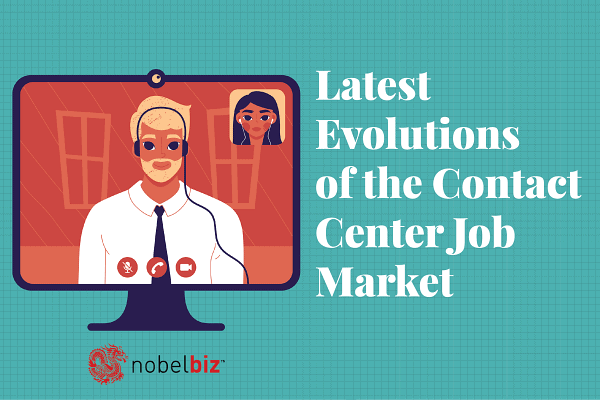As time goes by, the worldwide remote work experiment starts generating more and more data. In consequence, various industries seemed to have arrived at different conclusions when it comes to the work-from-home model. The latest news from the workforce market seems to point out that the contact center industry has settled for a clear model.
Work-from-home Is Not for Everyone
In some sort of a shock decision, at the end of September, JPMorgan called its employees back to the Madison Avenue offices. While acknowledging the risks of this resolution, the bank prefers to redesign the working space, rather than lose some key elements such as team bonding or proper junior training.
Needless to say, besides banking and fintech, there is an important number of other industries where face-to-face teamwork and socialization are vital. But nevertheless, some industries seem to thrive in the new post-corona environment and fully embrace the work-from-home model, as it promotes a high level of agility and flexibility.
Maybe a surprise for some and confirmation for others, but the contact center industry seems to have adapted quite well to the new reality of remote work. A J.D. Power study published at the end of August 2020 showed that out of the 124 customer service companies surveyed, 86% were planning to implement a remote work model even after the corona crisis comes to an end.

Contact Centers Have Fully Adopted the New Remote Model
Apparently, in terms of technology, contact centers meet all the criteria for remote work, especially with the advent of cloud routing and omnichannel solutions. These technologies are not necessarily new, but recently stepped into the spotlight as the perfect solutions that would allow any contact center to operate fully remote.
The same J.D. Power report states that one of the biggest hurdles is the training of new agents over video calls. The old curriculum is mainly designed to be taught in person and via one-on-one interactions between the trainer and the junior agent. Nevertheless, as we will see in the next paragraphs, new methodologies can and probably will be developed soon to solve this crucial aspect too.
The Job Market Confirms the Remote Model
As we still sail on the uncertain waters of the pandemic, it would seem that the theoretical predictions are matched by the news coming from the workforce market. Just as of the end of September there was a number of news showcasing that contact centers are doubling down on the work-from-home model. Recently, companies put out hiring offers for hundreds and thousands of remote work agents. Here are just a few examples:
- 500 customer service representatives in San Diego, California.
- 1100 call-center jobs in Texas
- 400 remote jobs in South Carolina
- ”…hundreds of openings for a call center” in Kentucky
While the majority of the companies will try to implement a fully remote selection and training process, some will want to bypass one of the key problems of the onboarding session. For example, in Winchester, Kentucky, one company will offer a 5-week on-premise training. After this, the agents can start their remote-work program having a full and proper qualifications.
One More Thing
We won`t go into details about the benefits of remote work. There are tons of articles that showcase what companies and employees can gain (or lose) when working from home. But we don`t want to end this article without mentioning a more positive aspect that is less discussed in regards to this topic.
This shift in working methodology opened the contact center workforce market, especially to people with disabilities or homebound. Regardless we are talking about caregivers or people with physical or mental issues, these are otherwise valuable people that cannot access work in an on-premise environment. Coupled with the remote enabling technologies, the new trend of work-from-home is a new and unhoped helping hand for some of us.
This is why, if you happen to be a decision-maker in this field, we encourage you to consider this newly available workforce. You might end up with some of the most loyal and hardworking players on your team.

Michael McGuire is a contact center industry expert with almost two decades of experience in the space. His experience includes roles as Director of Contact Center Digital Transformation at NobelBiz, and as Director of Operations at FLS Connect, managing multiple call centers. As President of Anomaly Squared and Targeted Metrics, Michael successfully transitioned companies into remote operations and significantly boosted revenues. With a strong background in customer service, leadership, strategic planning, and operations management, Michael excels in driving growth and innovation in the call center space.
Mike is also a proud Board Member for R.E.A.C.H Trade Group, promoting consumer protection and satisfaction and Co-host of the Off Skripted Podcast – a show about Life, Call Centers and everything in between.






